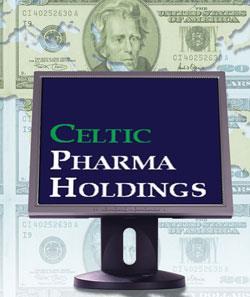Private equity has transformed the chemicals industry, but can it play the same role in high-risk R&D driven companies? Nuala Moran reports
Private equity has transformed the chemicals industry, but can it play the same role in high-risk R&D driven companies? Nuala Moran reports
Here’s a curiosity: the private equity industry controls deep and significant pools of capital and the biotech industry is notoriously short of finance. So how is it the two are hardly acquainted?

Even more puzzling, biotech’s mature, profitable and fiscally conservative older sibling, the pharmaceutical industry, has barely attracted the attention of private equity either.
Private equity firms raise their funds from investors such as pension funds and insurance companies. As such the ’private’ in private equity distinguishes money that comes from these individual funds from money raised on public stock markets.
Much like a house-buyer taking out a mortgage, a private equity firm invests a portion of these funds and borrows the rest from banks. Since 2003 low interest rates have made the bank loans to fund private equity deals very cheap, and in the same way as house buyers have been able to borrow a higher and higher percentage of the purchase price to buy more and more expensive houses, private equity firms have completed greater numbers of bigger deals. Among other sectors, the chemicals industry has been the subject of many of these acquisitions.
But, in its rampant prime, private equity has steered clear of pharmaceutical and biotech despite the fact that the sector is experiencing intense merger and acquisition (M&A), licensing and other deal-making activity. In the first 11 months of 2007 there were 130 M&A transactions in the sector, according to BioWorld Financial Watch - on track to match the 152 completed in 2006.
Private equity firms are known to have shown an interest in some of these deals. A notable example is the sale by Germany’s Merck KGaA of its generic medicines division, in which US drug company Mylan saw off a number of other bidders, which were reported to include the private equity firms Cinven, Permira and Texas Pacific Group.
Then private equity had the perfect opportunity to buy the large and well-established US biotech Biogen Idec, when at the end of last year the company was forced by activist shareholder Carl Icahn to put itself on the market. Icahn’s actions had prompted the sale of MedImmune to Anglo-Swedish drug firm AstraZeneca for $15.6 billion (?7.8 billion) - a 21 per cent premium - in June 2007. But in the case of Biogen, no suitors, either from private equity or the biopharma industry, passed muster.
One biotech to have admitted attracting the interest of private equity is Sydney-based Peptech. Profitable for the past four years, its coffers were swollen with Aus$186 million (?83 million) cash from the sale of its interest in UK antibody specialist Domantis to GlaxoSmithKline. But in February 2007, as the company pondered strategic alternatives, its market capitalisation on the Australian Stock Exchange stood at a miserly Aus$250 million. Chairman Mel Bridges said the ’unsolicited approaches’ had come from ’top tier, global and industry specialised firms’.
In the event, after exploring the private equity option, Peptech opted to acquire fellow Australian biotech EvoGenix for just Aus$128 million, and subsequently changed its name to Arana Pharmaceuticals. Evidence perhaps that private equity is no more likely than the market to put a fair value on development-stage biotechs.
Fighting shy
The position in pharmaceuticals contrasts sharply with the chemicals industry, where although the majority of M&A activity is driven by trade buyers, investments by private equity have transformed parts of the sector. An example is the chemicals distribution business in Europe, which has been completely reshaped by private equity buyers over the past five years.
The exemplar here is the German company Brenntag, which, after it was acquired by the US private equity firm Bain Capital in 2004, embarked on a series of mergers and acquisitions across Europe and North America, emerging as the world’s largest chemicals distributor. In 2006 it was sold on by Bain to a new private equity owner - BC Partners.
Similarly, UK chemical company Ineos has used private equity to acquire and consolidate a number of commodity chemicals businesses since its formation in 1998, through the management buyout of Inspec’s ethylene oxide plant in Antwerp, Belgium. Since then founding CEO Jim Ratcliffe has built the company into the world’s fifth largest by sales, according to Chemical Week’s industry league table, the Billion-Dollar Club.
Private equity may have become synonymous with buying companies, stripping the assets and slashing the workforce, before selling up at a fat profit and moving on. No doubt there is a darker side to the business. But it is also fair to say that private equity has been very supportive of much-needed consolidation, and has contributed to the increase in efficiency - and profitability - of the chemicals industry over the last few years.
So why is private equity avoiding biopharmaceuticals? The answer to the conundrum is risk. The process of drug discovery, development and commercialisation spans at least 10 years, is fraught with regulatory hurdles and features a massive failure rate. No amount of financial engineering can accommodate this fact, even if poor share price performance and unhappy shareholders give the impression that big pharma is prime private equity territory.
And the difficulties do not end here. Once a drug makes it to the market there is significant product liability risk, as the case of Merck and its COX-2 inhibitor Vioxx richly illustrates (Chemistry World, December 2007, p 56).
In short, cash-strapped biotech has a risk profile that makes it unattractive to private equity. Pharma may have reliable cash flow, markets that are immune to economic downturn and balance sheets that are wide open for re-gearing - not to mention the cost -cutting opportunities offered by serial levels of management and huge sales forces. But denuded pipelines and impending patent expiries have left it, too, exposed to the discovery and development risk that plagues biotech.
In the shallows

While private equity firms have avoided biopharmaceuticals because of the risk associated with drug discovery and development, there have been forays into the less risky parts of the life sciences sector, as in the attempt to acquire Merck KGaA’s generics unit. Another recent example is the $11.4 billion acquisition of the US medical devices company Biomet by a consortium of three private equity firms in October 2007.
Then there was the sale of Axcan Pharma of Toronto, Canada to TPG Capital for $1.3 billion in December. Also in December, the contract research organisation Quintiles was acquired by a group of private equity investors, at a price that was not disclosed. The company was owned by private equity interests already, having been bought for $1.7 billion in 2003 by One Equity, the private equity arm of JPMorgan Chase, aided by the company’s founder Dennis Gillings .
Similarly, Bristol-Myers Squibb (BMS) sold its medical imaging business for $525 million to Avista Capital Partners. Interestingly, BMS says it will use the proceeds to finance clinical trials of biotech drugs.
This highlights the one way in which the pharmaceutical industry can truly be said to have deployed the resources of private equity, and that is in using it as a channel for offloading non-core assets, to enable a sharper focus on the high-risk, capital and knowledge-intensive business of drug development.
’As BMS continues to focus on evolving into a next generation biopharma company, we felt the best way to maximise the value of medical imaging for shareholders was to sell this business and re-invest the proceeds into our pharmaceutical research, development and commercialisation effort,’ said James Cornelius, CEO of BMS, during his announcement of the sale.
Private equity involves the acquisition of an existing company, or part of a company. This distinguishes it from venture capital - where private investors buy into the creation of start-up companies based on a new technology. One of the prime targets is quoted companies that are assessed to be undervalued by the stock market and which can be restructured, made profitable and sold on.
There are many examples of private companies that have been built up and run by the same owner for a longer period, but a private equity firm would usually seek a profitable exit within a few years - either through an initial public offering (IPO) of shares on the stock market, a trade sale, or selling on to another private owner. According to the British Venture Capital Association the average time for a private equity owner to hold onto a company is five years.
The industry has risen to prominence since 2003 on the back of cheap credit. Money has poured into private equity funds from institutional investors including pension funds and insurance companies, enabling them to target bigger and bigger companies.
Large deals such as the ?12 million acquisition of Alliance Boots by Kohlberg Kravis Roberts, the world’s largest fund, have put private equity in the spotlight in the UK.

For its advocates, private equity liberates executives from the tyranny of quarterly reporting and dealing with restive shareholders, freeing up time to focus on long-term management.
The single factor that has done most to blacken the image of the industry in the UK is the 10 per cent rate of corporation tax that private equity fund managers pay on their profits currently.
This low rate is intended to promote risk-taking and entrepreneurship, two activities which critics say are far removed from private equity’s low-risk financial engineering approach to flipping undervalued public companies.
The 10 per cent rate is due to increase to 17 per cent in April. However, protests that trying to extract more tax from private equity fund managers will hit the true risk-takers in venture capital appear to be prompting a rethink by the government.
The key piece of financial engineering deployed by private equity is gearing - or increasing the size of each investment by borrowing some of the money. That debt subsequently ends up on the balance sheet of the acquired company. With low interest rates, the amount of borrowed money in private equity deals increased sharply in the past four years, with consequent increases in profits when companies are sold.
Private equity has also flourished on the back of changes in banking practices. Rather than holding onto a debt, banks now charge a fee for arranging it and then sell it on, creating a constant stream of capital for new loans.
But in July 2007 the private equity snowball came to an abrupt halt when the fallout from the US subprime mortgage crisis put a stop to cheap credit. Banks found themselves unable to sell on loans from private equity deals that closed previously and deals in the pipeline started to unravel.
Risk and reward

In December 2007, private equity house Celtic Pharma claimed it had found the formula for finessing the risks in biopharma, when it announced the launch of two new funds worth $1.5 billion in total, to invest in development stage biotech companies and products. At the same time the firm said its first $300 million fund, launched in 2005, was reaching the fully subscribed mark, with the first exits promised for early in 2008.
’We’ve shown private equity can be successful in this space,’ says John Mayo, one of the firm’s co-principals.
As Mayo notes, there are 3000 biotech companies in North America and Europe, and only 30 are successful. ’There’s a 99 per cent failure rate at the moment.’
Glyn Edwards, CEO of UK oncology specialist Antisoma believes the Celtic model is instructive because it demonstrates that there are undervalued public biotech assets. But, he adds, ’Quite frankly across Europe [the $1.5 billion funds] are just a drop in the ocean.’
Celtic says it is bridging the gap between cash-starved biotech and the denuded pipelines of big pharma. It does this by bringing in cash and applying pharmaceutical industry expertise to drug development, ensuring products reach the standards required, and thus reducing the risks for its own investors.
’Once we have a majority stake we can afford to apply resources that venture capitalists (VCs) with smaller stakes cannot,’ says Mayo, who in a former post was responsible for splitting off the pharmaceuticals interests of the (then) chemicals giant ICI to form Zeneca plc, and was chief financial officer when Zeneca subsequently merged with the Swedish drug company Astra AB.
’VCs tend to provide capital and a sharp stick they poke people with at board meetings,’ he continues. The same sentiments could be applied to the shareholders of public companies. ’With private equity we take control of a company and from that point make sure the product, manufacturing, data, clinical trials and everything, are to big pharma standards.’
The portfolio of Celtic’s first fund was built on the acquisition of the quoted UK biotech Xenova Group in June 2005 for ?20 million cash. The firm subsequently took a 21 per cent stake in IDEA of Munich, Germany, and licensed rights to a number of IDEA’s products. It also acquired rights to Xerecept, a drug to treat cerebral oedema - swelling of the brain due to the accumulation of water, from US-based Neurobiological technologies. The drug is now in Phase III trials.
On the strength of this portfolio, in February 2007 Celtic did something else that is unusual in the sector, raising $156 million in loans secured against its drug development programmes.
The principal and interest due on the loans will not be paid until there are proceeds from selling products onto pharmaceutical companies. Interestingly, at the time it set out to borrow the money there were eight products, but it then decided to axe the lead product, TransMID, a treatment for brain cancer.
Such news has sunk quoted biotech companies. But Mayo noted at the time that the decision to scrap the product had not affected sentiment. ’The news on TransMID came in during the process [of raising the loan]. But we’re not like a biotech with a lead product and others following based on the same technology. We have a bunch of other products based on different technologies.’
Celtic said the way in which it took the decision to scrap TransMID was a further vindication of its model. As a private equity firm it is not subject to external pressures to continue with programmes where the risk/reward profile is moving in the wrong direction.
’Celtic Pharma’s first fund has shown that the private equity model for pharmaceutical investment and development is highly successful and we look forward to replicating this success in our next funds,’ Mayo said as the second two funds were launched.
But the opportunity to replicate Celtic’s model may have passed. The credit crunch initiated in July 2007 by the US sub-prime mortgage crisis, and exemplified by the fiasco at the UK bank Northern Rock, has made it impossible to raise cheap money, and many US financial institutions entered 2008 with loans given to finance private equity deals sitting on their balance sheets. Perhaps the private equity pendulum has swung.
Nuala Moran is a science and business journalist based in Manchester, UK






No comments yet